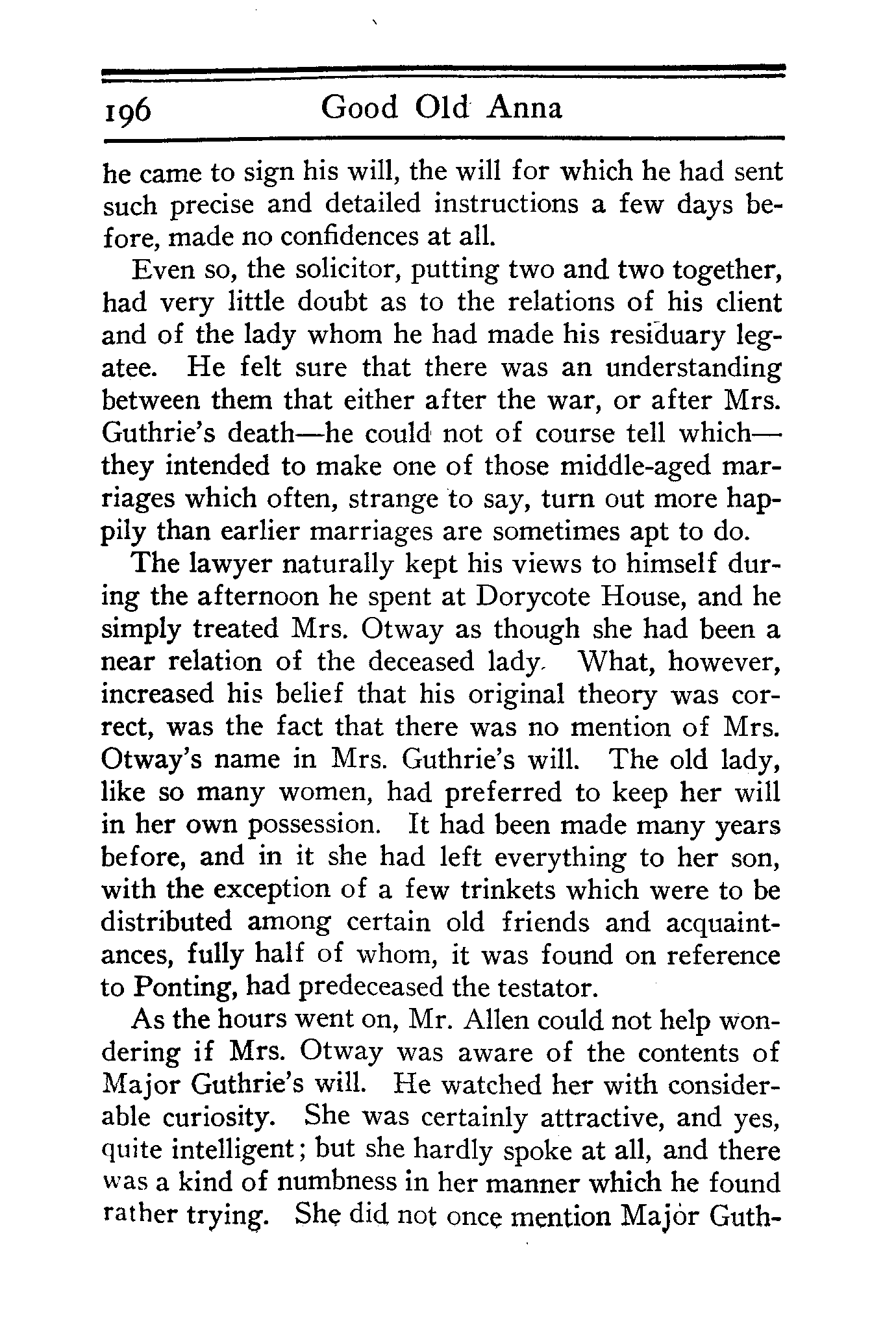 p195 _
-chap- _
toc-1 _
p196w _
toc-2 _
+chap+ _
p197
p195 _
-chap- _
toc-1 _
p196w _
toc-2 _
+chap+ _
p197
he came to sign his will, the will for which he had sent
such precise and detailed instructions a few days before,
made no confidences at all.
Even so, the solicitor, putting two and two together,
had very little doubt as to the relations of his client
and of the lady whom he had made his residuary legatee.
He felt sure that there was an understanding
between them that either after the war, or after Mrs.
Guthrie's death -- he could not of course tell which --
they intended to make one of those middle-aged marriages
which often, strange to say, turn out more happily
than earlier marriages are sometimes apt to do.
The lawyer naturally kept his views to himself during
the afternoon he spent at Dorycote House, and he
simply treated Mrs. Otway as though she had been a
near relation of the deceased lady. What, however,
increased his belief that his original theory was correct,
was the fact that there was no mention of Mrs.
Otway's name in Mrs. Guthrie's will. The old lady,
like so many women, had preferred to keep her will
in her own possession. It had been made many years
before, and in it she had left everything to her son,
with the exception of a few trinkets which were to be
distributed among certain old friends and acquaintances,
fully half of whom, it was found on reference
to Ponting, had predeceased the testator.
As the hours went on, Mr. Allen could not help wondering
if Mrs. Otway was aware of the contents of
Major Guthrie's will. He watched her with considerable
curiosity. She was certainly attractive, and yes,
quite intelligent; but she hardly spoke at all, and there
was a kind of numbness in her manner which he found
rather trying. She did not once mention Major Guth-
[[196]]
p195 _
-chap- _
toc-1 _
p196w _
toc-2 _
+chap+ _
p197